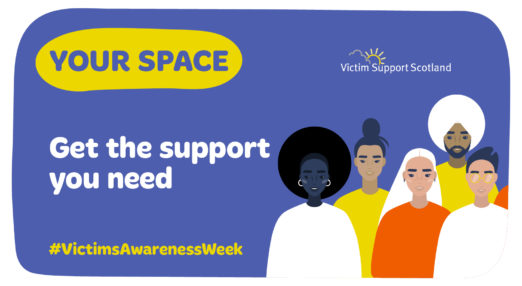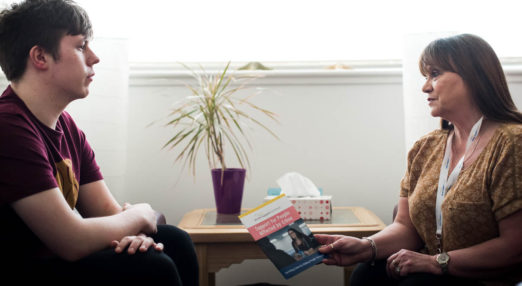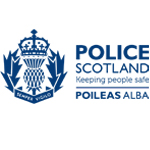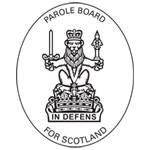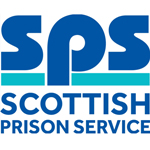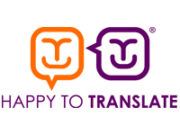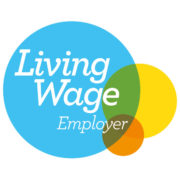Providing the space to feel understood
Victim Support Scotland volunteer, Jane Trinder, provides an insight to the support she gives people impacted by crime to feel understood.
It can be difficult to speak to a stranger about a crime and how that has impacted on you – physically, emotionally, socially or practically.
Starting the conversation can be the hardest part – how you feel emotionally or talking about the crime itself. But every day Victim Support Scotland volunteers like myself, work with people who have been affected by crime, directly or indirectly, and encourage them to put their trust in us to support them on their journey to recovery.
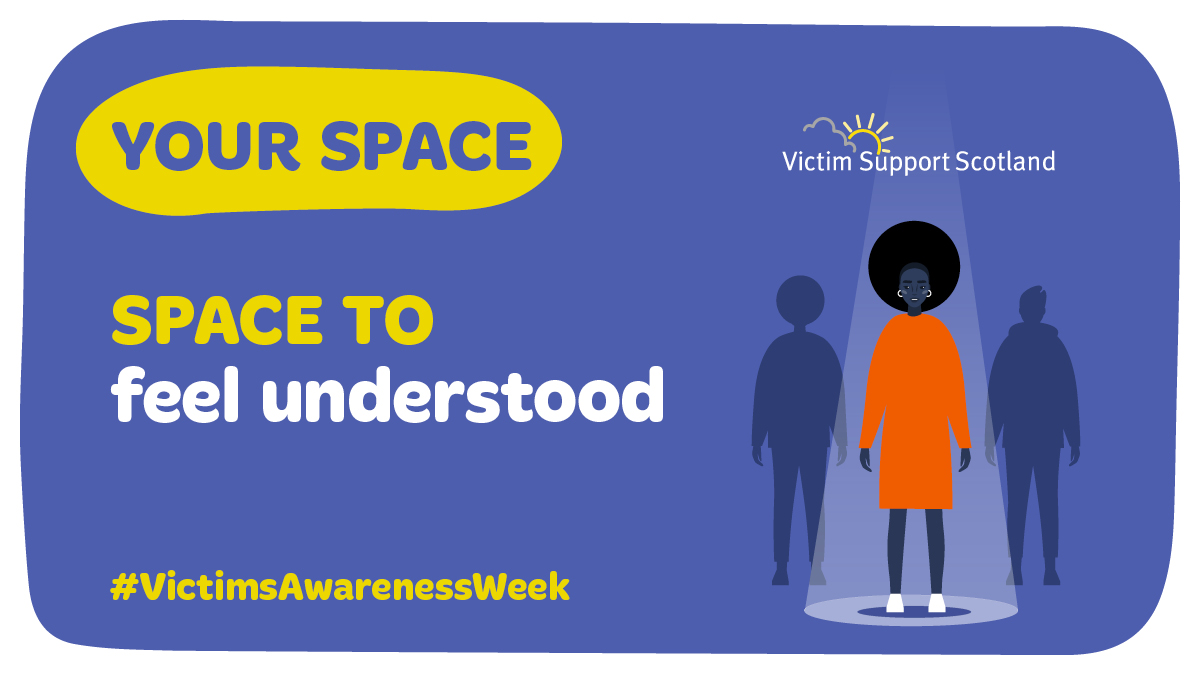
Making people feel at ease
Victim Support Scotland volunteers undertake a wide range of initial and ongoing training to help us in our role. I use a person-centred approach to the support, by offering the person respect, empathy, genuineness and unconditional positive regard – this means I am non-judgemental, accepting the person for who they are.
I listen actively – I might be the first person they have spoken to, or it can be the first time they have properly felt listened to. I do this by believing them, not questioning their story, by assuring them that how they feel is ‘normal’, as everyone reacts differently to the trauma of crime and I acknowledge their concerns.
I use open-ended questions, which both invites the person to open-up but let’s them remain in control, choosing to tell me what they want. This is particularly important to creating a rapport and putting people at ease.
VSS volunteers are trained to help
Unfortunately, I don’t have a magic wand to wave and make everything better, but I do have the tools and skills to help the person on the path to recovery.
My first contact can be unexpected which can mean the person doesn’t really know if, or even how, we can help them. I may also go in ‘blind’, having minimal information about the crime. In these circumstances I feel I need to adapt my approach, perhaps by choosing my words more carefully. I also have to acknowledge when someone doesn’t want support – they may feel there is nothing we can help them with, or they don’t feel able to engage at that moment in time (one phrase I hear frequently is it’s ‘too soon’ or ‘too raw’).
I let them know that I understand and that we are here for them, when they are ready – they can contact our National Support Centre at any time to be referred to the local service, as crime affects everyone differently and how each individual ultimately reacts to that crime.
I let everyone that I speak to know there is a ‘ripple’ effect with any crime and we support those indirectly affected as well – including families and friends – we are there for everyone impacted by crime.
The way that everyone works has changed dramatically over the last 12-months due to the Coronavirus pandemic. We are currently working remotely using non-face to face methods – in my case telephone and email – and this has been a major change for me, as I’ve always made home or office support visits.
Another major change for me involves how we manage our support cases – it has only been since last year that I have been responsible for progressing support needs, which was undertaken by office staff, but it is something that I welcome as it keeps me connected with the person I am supporting and enables me to follow their recovery journey.
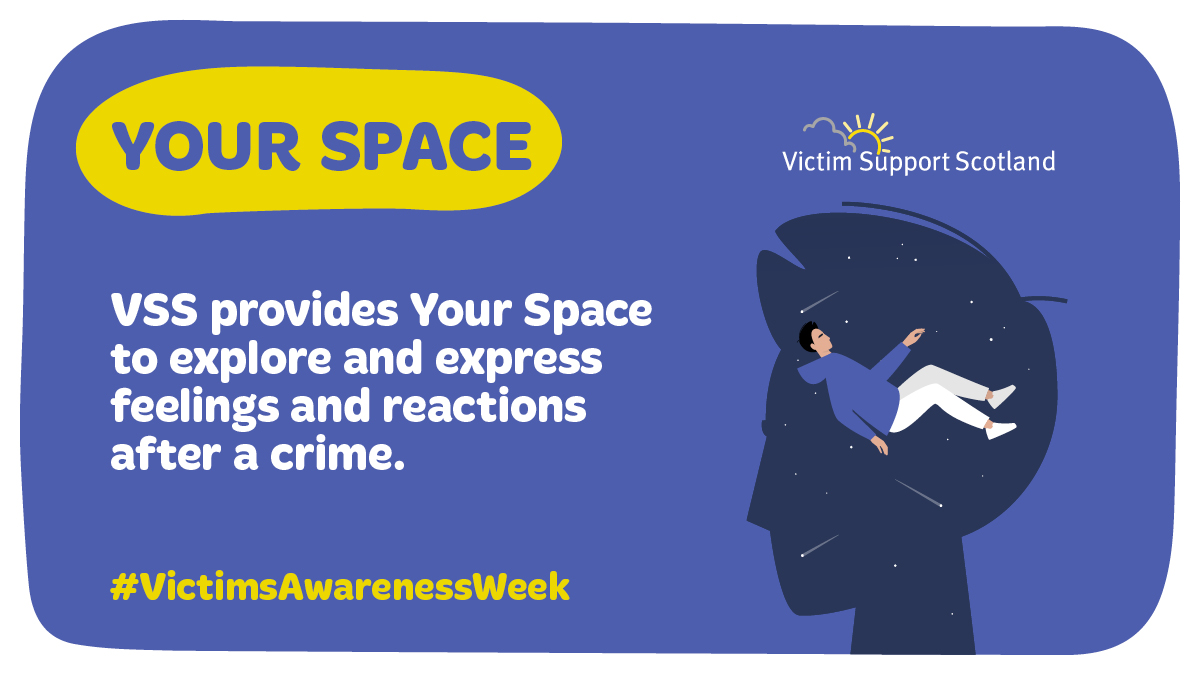
Continuity of support
I have found that ‘continuity of support’ is greatly beneficial. Having the same support team during their journey through the criminal justice system means they don’t have to keep repeating their story, which we know can be traumatic for people impacted by crime.
This is also often cited as one of the main reasons why people don’t seek help, as they are concerned about continually repeating the details. I can also act as an intermediary for the person with other agencies, if they request it, which can help reduce their anxiety and stress levels, allowing them to focus on areas in their life that are otherwise neglected.
I’ve recently been working with. The crime had affected her so much that other agencies could not engage with her due to her inability to focus and maintain communication. I advocated on her behalf, giving agencies a greater understanding of her needs. She told me, more than once, that she felt Victim Support Scotland was the only organisation “trying to help and was listening to the whole story, not just what the other organisations felt was relevant to them – they couldn’t see the bigger picture”.
During Victims Awareness Week, it is important to remember that everyone reacts to crime differently. With our knowledge and experience of the diverse impacts that crime can have on your mental health, we will ensure you feel safe and understood.
We will acknowledge your feelings and concerns, and support you to manage any reactions you may be experiencing. If you need support, please contact us via our helpline (0800 160 1985), our webchat service (see bottom right) or our contact form.
Latest news and blogs
-
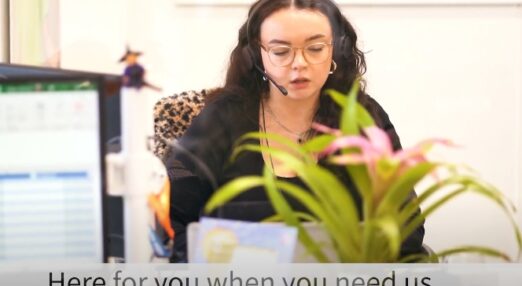
We’re here – support over the festive period
We know that the festive period can be difficult for people impacted by crime - that's why we'll remain open right through Christmas and New Year.
Read more
-
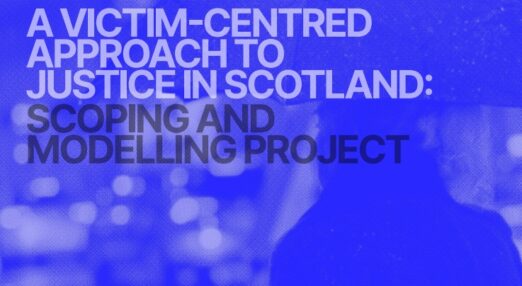
A Victim-Centred Approach to Justice in Scotland: Scoping and Modelling Project
This project, commissioned by Victim Support Scotland, sought to explore how a more victim-centred approach could be realised in Scotland's criminal justice system.
Read more
-

Concern over impact of new early prisoner release bill as Scotland’s crime stats revealed
Victim Support Scotland has expressed concerns about the impact of the Prisoners (Early Release) (Scotland) Bill, which was passed by MSPs yesterday, in light of new crime statistics revealed by the Scottish Government.
Read more
-
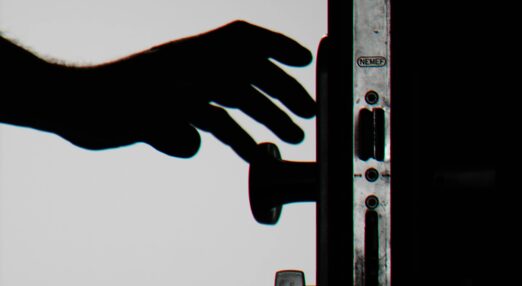
Victim Support Scotland voices concerns about Prisoners (Early Release) (Scotland) Bill
Victim Support Scotland has voiced concerns about the Prisoners (Early Release) (Scotland) Bill.
Read more
-

Media Reporting on Child Homicide – Victim Support Scotland Consultation Response
Victim Support Scotland's response to the Scottish Government consultation on Media Reporting on Child Homicide.
Read more
-
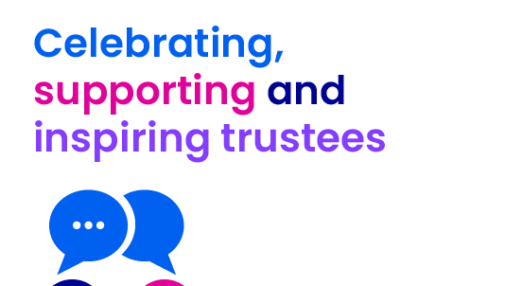
Highlighting the role of Trustees at VSS
We sat down with Gillian Imery, one of our trustees, to chat about the role she plays, why she decided to get involved with VSS, and how her skills and experience enrich our charity.
Read more
-

Statement on Homicide in Scotland figures
Victim Support Scotland has released a statement in response to the Homicide in Scotland figures released by the Scottish Government.
Read more
-
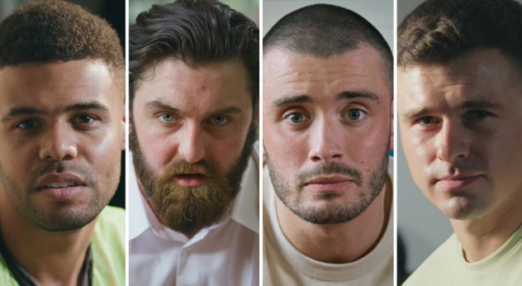
Statement on Police Scotland rape statistics
Victim Support Scotland has released a statement on the figures released by Police Scotland which show an increase in the number of rape cases reported within the last 6 months, alongside the launch of the latest 'That Guy' campaign.
Read more
-
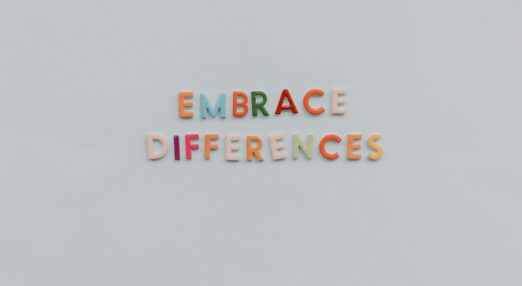
Victims of hate crime need to have their voices heard
This article by our Chief Executive Kate Wallace argues why more must be done to support victims of hate crime.
Read more
-

Statement on Scottish Government’s plans for Victim Notification Scheme reform.
Victim Support Scotland has released a statement on the Scottish Government's plans for reform of the Victim Notification Scheme.
Read more
-

Statement on Scottish Government plans for long-term prisoner release
Victim Support Scotland has released a statement on the Scottish Government's plans for long-term prisoner release.
Read more
-

Experiencing Hate Crime – Helena’s* story
When Helena’s* partner became disabled as a result of a severe stroke, they began to experience a series of hate crimes perpetrated against them by a neighbour. VSS supported her during the court process, towards the end of her ordeal. This is her story.
Read more

